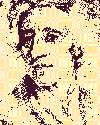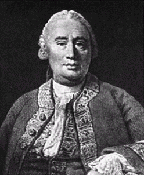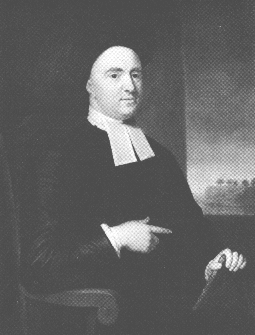| |
PLATO |
 |
Plato (427 B.C.-347 B.C.) in his dialogues argues that the world of objects
is only a shadow of ideal forms, which exist eternally. To see things in
their ideal form would be like having someone who had been tied up in a
cave all his life seeing nothing but shadows on a wall suddenly released
to see the sun and our world of objects. (For this reason, Plato wanted
to have poets expelled from his utopic Academy since fictional representation
is at a yet further remove from ideal forms.) At birth, we forget our knowledge
of ideal forms, which we knew before being shackled to our bodily senses.
Philosophers and mathematicians are best able to approach once again the
world of ideal forms because they deal only with the precepts of reason.
As Plato writes in the Phaedrus, "For a man must have intelligence
of universals, and be able to proceed from the many particulars of sense
to one conception of reason;--this is the recollection of those things which
our soul once saw while following God--when regardless of that which we
now call being she raised her head up towards the true being. And therefore
the mind of the philosopher alone has wings; and this is just, for he is
always, according to the measure of his abilities, clinging in recollection
to those things in which God abides, and in beholding which He is what He
is. And he who employs aright these memories is ever being initiated into
perfect mysteries and alone becomes truly perfect. But, as he forgets earthly
interests and is rapt in the divine, the vulgar deem him mad, and rebuke
him; they do not see that he is inspired." |
| |
|
| |
LOCKE |
 |
Two traditions stemming from John Locke (1632-1704) could be said to drive
philosophy in opposite directions over the course of the eighteenth century.
According to Locke, the human mind at birth is akin to a tabula rasa,
a blank slate upon which impressions are lain. By consequence, Locke argues
that the mind has no innate ideas, that all we know comes from experience,
although he does allow that the mind can become self-conscious because of
certain innate faculties that allow the mind to recombine experiences in
order to create new ideas. No ideas are innate; however, simple perceptions
of the exterior world of objects require the combining and abstracting power
of the mind to be turned into complex ideas. |
| |
THE
MATERIALISTS |
 |
Locke's theories directly influence two competing eighteenth-century philosophical
accounts of the subject, which we can term for ease's sake Materialism or
Objectivism and Idealism or Subjectivism. In the materialist camp, are the
philosophers, David Hume (1711-1776; pictured here) and David Hartley (1705-1757).
Taking Locke one step further, they argue that, if all our ideas come originally
from perceptions of the material world, then we are nothing but what
we perceive. Complex ideas are only the result of associations made
among ideas intially impressed upon the tabula rasa of our brains.
Hartley attempted to discover the rules of causality determining our brain's
associations (and could thus be said to apply Newton's theories to the realm
of psychology). In short, according to this logic, we are what we are thanks
solely to perception and, then, habit of association. The objects of the
world and of our experiences determine who we will be. The object is all. |
| |
THE
IMMATERIALISTS |
 |
A competing theory—the "immaterial hypothesis"—is
raised by Bishop George Berkeley (1685-1753), who takes Locke's emphasis
on perception in an opposite direction. Perhaps it is not that we are determined
by our perceptions but, rather, that, as Berkeley writes, "No object
exists apart from the mind; mind is therefore the deepest reality."
In other words, rather than state that we are nothing but what we perceive,
Berkeley argues that the world is nothing unless we perceive. Later
in his writing, Berkeley dissociates the subject even further from the material
world by arguing that it is not perception but our original conceptions
that determine the being of things. As he states in this later work, the
mind is, in fact, "depressed by the heaviness of the animal nature
to which it is chained"; "we are "oppressed and overwhelmed
by the senses," which present to us a "region of darkness and
dreams." In such a formulation, one must always seek to escape the
objects of the material world. The subject is all. |
| |
KANT |
 |
Immanuel Kant (1724-1804), who is arguably the most influential philosopher
of Romanticism, reconciles these two tendencies, which he terms an Antinomy
between, on the one hand, the intellectual, rational world (the SUBJECT)
and, on the other, the spatiotemporal world (the OBJECT). According the
Kant, the mind has no content until it interacts with the world; however,
the mind does have innate formal structures or templates that order the
world that is perceived. It is only because of the receptive capacity (what
Kant terms Sensibility) that the world appears to us as orderered through,
for example, the formal constructs of time and space. (Because of this ordering
capacity of the mind, however, we are also kept separated from a knowledge
of things in themselves—the ding-an-sich—since we can only
perceive things as they appear to our sensibility). The mind also has the
power to synthesize its perceptions through the capacity of Imagination.
It is through the Imagination that we are able, for example, to see what
is common in external objects. Finally, the mind includes a yet higher capacity,
which Kant calls Understanding. This Understanding, which is intimately
connected with our power of judgment, seeks to draw conclusions about what
lies beyond the boundaries of sensibility (beyond, for example, time and
space). We may not be able to know God, Freedom, or Immortality directly
but we can recognize (through the power of the Understanding) that these
things are necessary preconditions for the employment of reason in the realm
where we can have knowledge (the world of appearances). The Understanding's
desire to go beyond constraints like time and space is also what allows
us to determine things like duty, ethics, and laws. |









